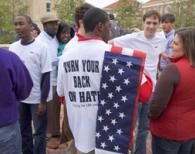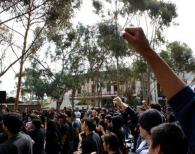At the University of Mississippi, a segregationist chant and Ku Klux Klan rally threaten to divide the campus community, but student leaders and their chancellor take a stand against hate and intolerance. This story is part of the Not In Our Town program, Class Actions, that aired on PBS stations in February 2012. Many conflicts over the legacy of slavery and the Confederacy have occurred since this program was produced. This story profiles action led by students and supported by the University's Chancellor to involve the whole campus in standing up to racism and hate.
A chant with a racist history
racism
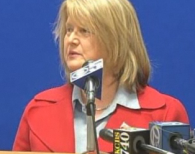
"An attack against one person in our community is an attack against all of us." It's a common feeling among Not In Our Town leaders and it was also the message from San Jose City Councilwoman Rose Herrera, speaking at a press conference yesterday.
Kootenai County Task Force on Human Relations volunteers in the Coeur d’ Alene, Idaho July 4, 2007 parade, carrying small billboards honoring civil rights leaders from throughout history.
For many in the anti-hate movement, the lessons that have emerged from Northern Idaho are legendary.
People like Father Bill Wassmuth, whose house was bombed by neo-Nazis in Coeur D'Alene, helped influence many community leaders working to address the dangers of hate.
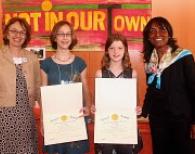
Not In Our Town: Princeton has been tackling racism since the group was founded in this New Jersey university town more than a decade ago.
Their visible actions appear on the streets, in schools, and in their public library. Three key programs include:
outreach to downtown merchants
ongoing public conversations about racism and privilege
Unity Awards for local students
Princeton is a well-heeled town, home to Princeton University, one of the nation’s premier Ivy League institutions. Just five percent of its 16,000 residents are African American and another five percent are Latino. Racial tensions and socio-economic disparities exist, and that's where this NIOT group has chosen to focus.
The group’s mission statement is “to speak truth about ‘everyday racism’ and other forms of prejudice and discrimination,” and to “promote social justice, economic justice and educational equity for all.”
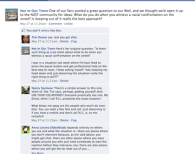
You're walking down the street, and witness an act of racism. How do you respond?
One of our Not In Our Town Facebook fans posted this question to our Wall, and an honest, thoughtful conversation followed.
Here are highlights from the discussion -- read the full post and share your thoughts on the NIOT Facebook page.
"I get involved if I think I can do some good to dissolve the situation. If I think someone, including myself, could get hurt or violent, I call the cops. Silence is usually not an option." (Briana)
The recent arrest of Harvard professor Henry Louis Gates outside his Cambridge, MA home has sparked a national debate about racial profiling.
Yesterday, we took our cameras right outside our office door to Oakland’s Frank Ogawa Plaza, to find out what local residents think about the issues raised by the Gates arrest.
Does racial profiling persist in the United States? What was your response to Gates’ arrest? We want to hear your perspective! Please share your thoughts in the comments section below.
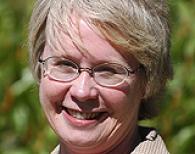
Margaret MacDonald, a leader in the Not In Our Town Movement in Billings, Montana, wrote the following letter to people in Brattleboro, Vermont who are uniting in response to incidents of racism and violence.
I have been reading with a sinking heart about the activities in Brattleboro, and my sympathies go out to the community as it struggles with hate groups cropping up among the youth of the city. Billings was in a very similar state of consternation and dismay back in 1993, when we began to organize the community to confront this phenomenon in ways that were creative, but firm.
Here is a review of some of the guiding principles that helped shape the responses, which were later recognized by the Working Group documentary “Not In Our Town.”
The first principle was that the hate speech – the graffiti, the vandalism, the flyers around town – should not be ignored simply because it came from “kids.” Of course, we did not know exactly where it came from, but many community leaders presumed it was, and also thought the best course would be to pretend it wasn’t happening.
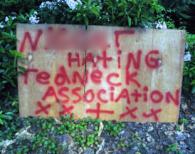
It was the worst kind of nightmare for the mother of a bi-racial high school student. In June, the people of Brattleboro, Vermont learned that a racist youth group called NHRA (“N—– Hating Redneck Association”) was active in the local high school. Larry Pratt Jr., a 17-year-old NHRA member, was arrested after waving a weapon at a multi-racial group of students near the high school grounds. Pratt and several other NHRA members were suspended from school and placed in a restorative justice program, but the alarm bells were ringing for parent and musician Barbara Holliday.
“It was the most visible in a long line of incidents, and the potential of violence was evident. Flyers from David Duke’s organization started appearing in surrounding neighborhoods. Nooses had been graffitied on road signs. The young people [in the NHRA] had nearly 30 members on their Facebook account and some had tattoos on their knuckles, formalizing their relationship to this racist group.”
- « first
- ‹ previous
- 1
- 2
- 3
